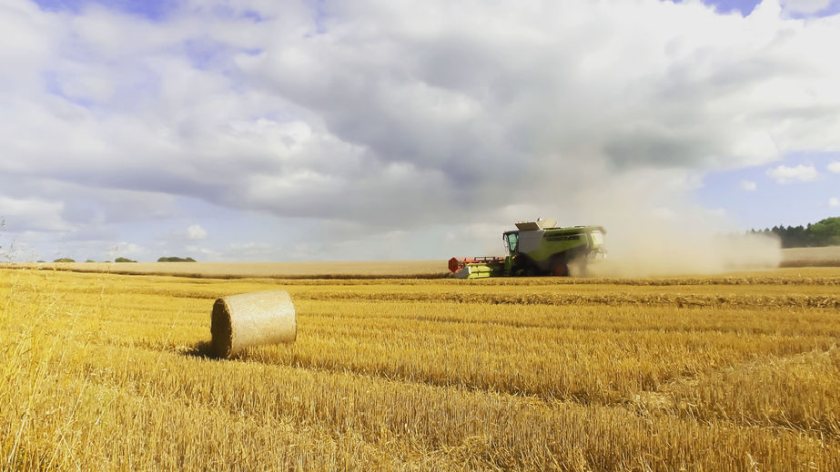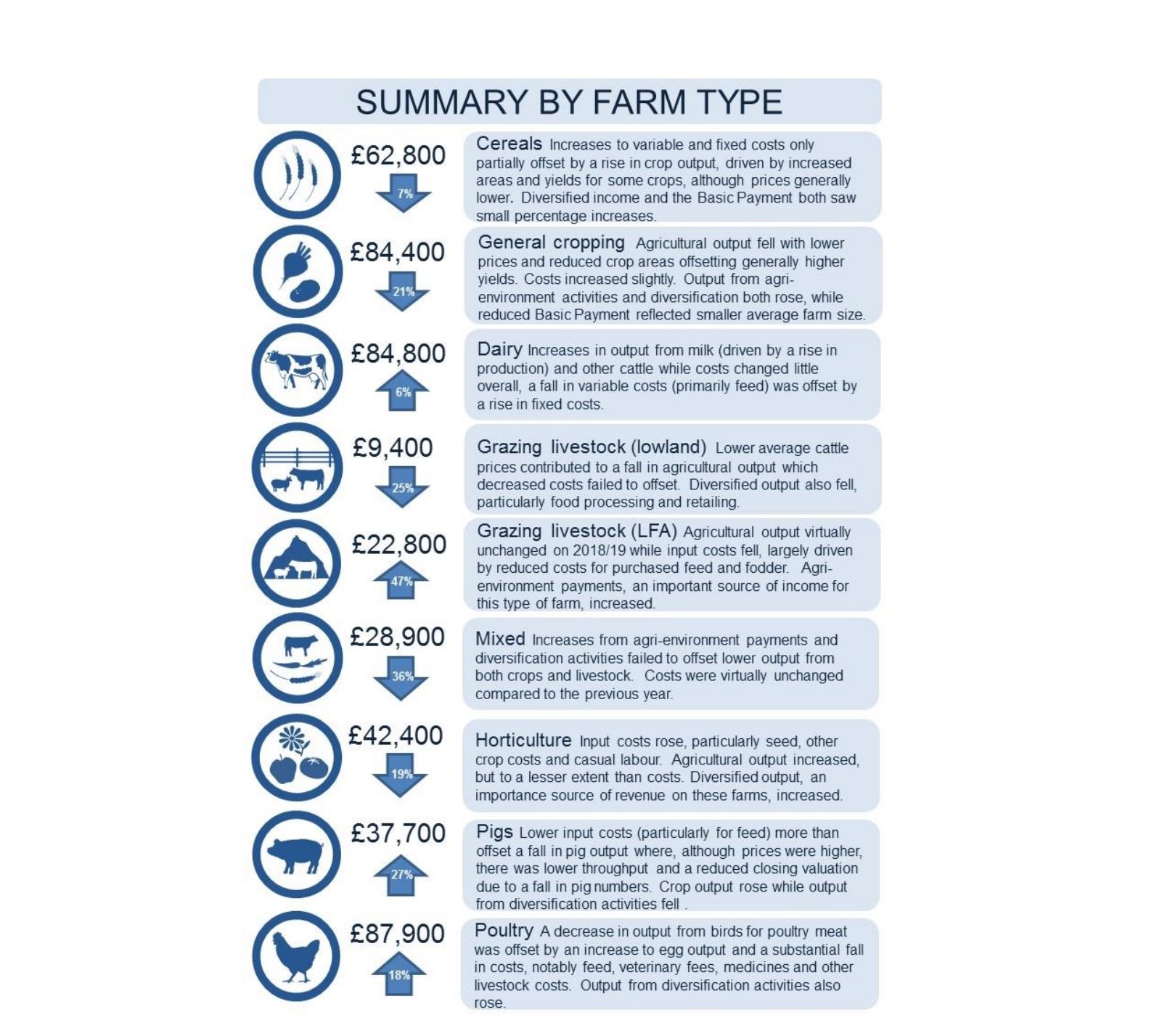
Defra has released its analysis of farm business income in England in the year 2019-20, showing income is down for arable and horticulture, but up for livestock sectors.
The report, published on Wednesday (16 December), provides survey results covering the 2019 harvest and that year's Basic Payment.
It shows that average income was lower for cereal, general cropping, lowland grazing livestock, mixed and horticulture farms.
While more favourable weather conditions compared to 2018 produced higher yields for many crops, a combination of lower prices for key commodities such as wheat and barley, together with increased input costs, led to income on cereal and general cropping farms falling by 7% and 21% respectively.
On dairy farms, average income increased by 6%, with increases in milk production and revenue from other cattle enterprises offsetting lower average milk prices.

On lowland grazing livestock farms, Defra says lower incomes were driven by reduced output from both cattle (reflecting lower prices and numbers) and sheep.
For Less Favoured Area (LFA) grazing livestock farms, a reduction in costs, particularly feed, and increased output for sheep led to a 47% increase in average income.
For specialist pig farms, the report says income increased with a fall in throughput offset by input cost reductions and higher pig meat prices.
Average incomes on specialist poultry farms rose due to a higher egg output, reduced costs and increased income from diversified activities offsetting lower output from poultry meat.
The average Basic Payment across all farm types was £27,800, which was little change compared to 2018, Defra explains.
